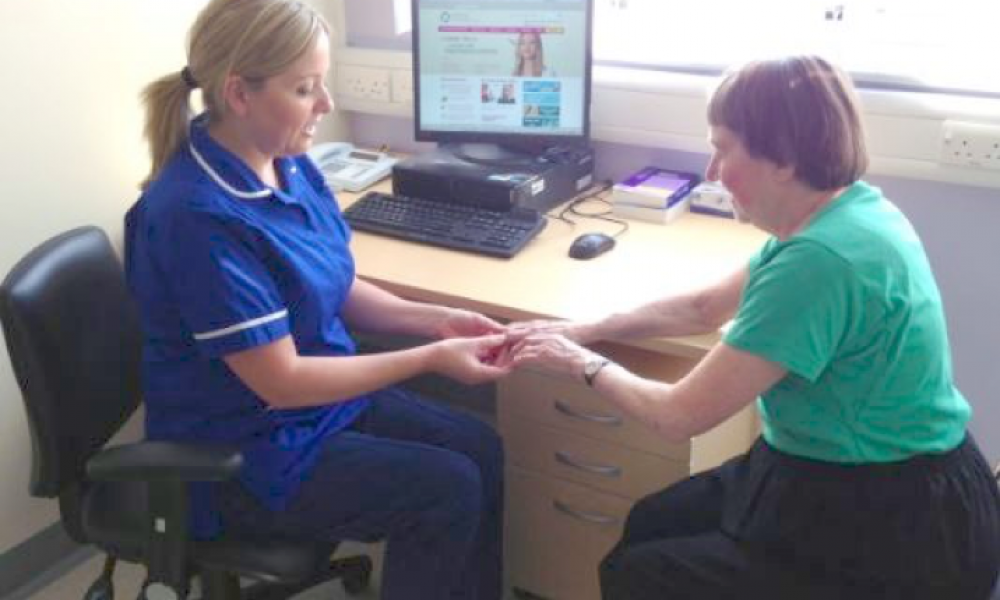
What is a Rheumatology Nurse?
A rheumatology nurse is a registered nurse (RN) who has a special interest and experience in caring for patients with rheumatological conditions. They work closely with the rheumatologist as well as other members of the health care team.
The rheumatology nurse may also be known as Clinical Nurse, Clinical Nurse Specialist or Clinical Nurse Consultant.
How are Rheumatology Nurses trained?
Most nurses now a days have completed studies at university, or hold qualifications such as a masters in Nursing. Just like doctors, in order to practice, they must be registered with the Australian Health Practitioner Regulation Agency (AHPRA). This body develops professional standards, codes and guidelines to regulate practice for health professionals. In order to maintain AHPRA registration, nurses must undertake a specific number of hours of professional development. This is to maintain, improve and broaden their knowledge, expertise and capability to provide safe and effective care.
There is no specific post graduate course to become a rheumatology nurse. They are nurses that have a special interest in rheumatology and usually have several years of experience in caring for people with many different conditions.
Many if not most rheumatology nurses are members of the Rheumatology Health Professionals Special Interest Group (RHPSIG) of the Australian Rheumatology Association (ARA). This group provides support, education and enables members to share knowledge and information.
What services do Rheumatology Nurses offer?
The rheumatology nurse is not only able to provide physical and emotional support but also education for patients with all types of arthritis. They are well placed to help answer questions about your disease or medications as well as providing a link with the rheumatologist. Most rheumatology nurses will also provide additional care such as telephone help-lines and online support.
When should I see a Rheumatology Nurse?
You can usually see a rheumatology nurse at any time.
Being diagnosed with any form of inflammatory arthritis can be overwhelming. The rheumatology nurse can explain in more detail about the particular condition, what it means and potential treatments that may be needed. They are usually able to provide written information as well as links to reliable websites that might help.
At any time after diagnosis, questions may arise. You may be started on new treatments, your circumstances may change or you may just need to talk to someone. Having access to a rheumatology nurse can help.
How may I find a Rheumatology Nurse?
Unfortunately, there are only limited rheumatology departments that have rheumatology nurses and these are usually in the public system. Please ask your rheumatologist if they have a nurse that works with them.
What is a Rheumatology Nurse Practitioner (NP)?
A Nurse Practitioner (NP) is a registered nurse with experience and expertise to diagnose and treat people of all ages with a variety of acute or chronic health conditions. The NP is the most senior clinical nurse in the health care system.
A rheumatology NP is someone that has extensive rheumatology experience and has undertaken the training detailed below. This allows them to work with patients with many different rheumatological conditions.
How are Rheumatology NPs trained?
To become an NP, the registered nurse has to complete a Masters degree in Nurse Practitioner Studies. To be eligible to complete this degree, they must have at least 3 years full time experience at an advanced nursing level in their chosen speciality; in this case, rheumatology.
Like the rheumatology nurse, the NP has to be registered with the Australian Health Practitioner Regulatory Agency (AHPRA). They also have to be endorsed by the AHPRA to be able to work in this role. In order to maintain this registration and endorsement, the NP has to undertake extra hours of professional development. This is to maintain, improve and broaden their knowledge, expertise and capability to provide safe and effective care.
What services do Rheumatology NPs offer?
NPs provide high quality, patient-centred care working in collaboration with the rheumatologist using an advanced model of care. This includes taking histories, performing physical examinations, interpreting results and developing a treatment plan. They are able to order and interpret X-rays/scans and other diagnostic tests and pathology, refer patients to other specialists and provide prescriptions and access to some PBS medicines.
The rheumatology NP does not work in isolation. This is a collaborative role designed to work alongside the rheumatologist to achieve many benefits for patients.










